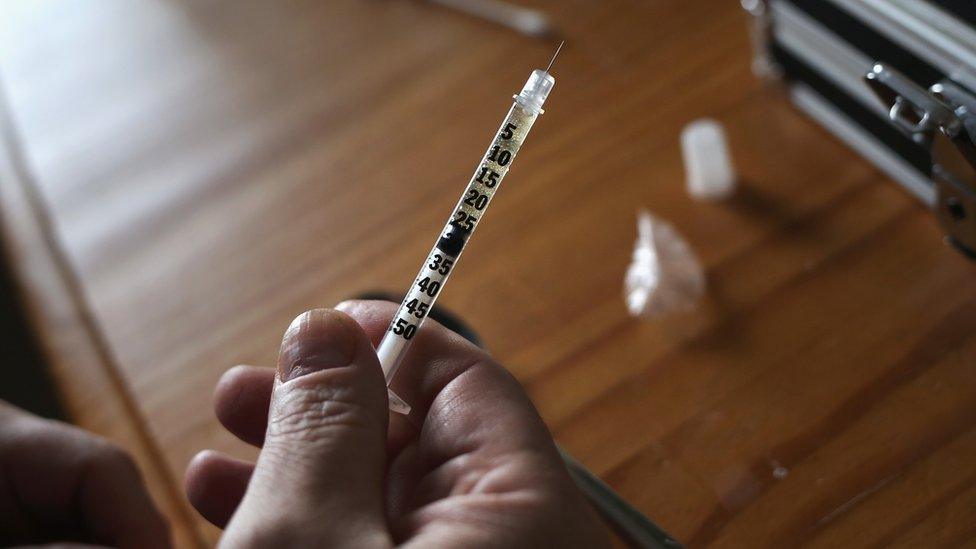'I'm going to operate a drugs fix room from a van'
- Published
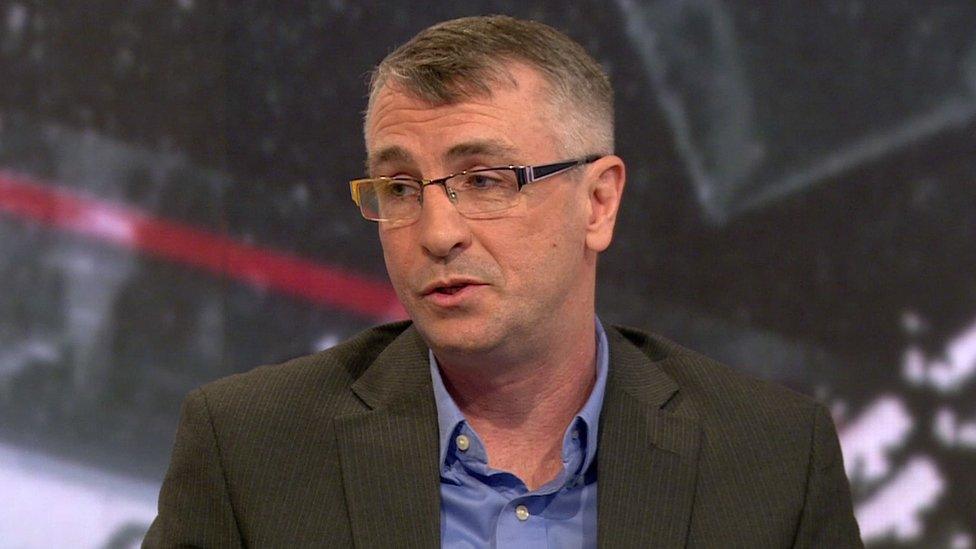
Peter Krykant says he's willing to risk arrest to set up the "fix room"
A former drug worker has said he is launching a mobile "fix room", where addicts can take drugs under supervision, even though he faces being arrested.
Peter Krykant started taking drugs himself at the age of 11.
"By my mid-teens I was taking LSD, acid, ecstasy, amphetamines," he tells the BBC's Victoria Derbyshire programme.
"It was really common with my peers. I grew up in a council estate in a small village. We wanted to escape."
He started to inject heroin at the age of 17, but says he has now not used drugs for 11 years.
He hopes to help other addicts by converting a second-hand van into a "safe space" where users can take their own drugs under medical supervision.
Within days of posting his plan online, he had received £2,000 in crowdfunding donations.
The page was shut down for breaching the site's rules, but he then received private donations, including a van, which he plans to kit out with clean needles, volunteer nurses, and supplies of naloxone, an overdose-reversing drug.
'Willing to be arrested'
He hopes his mobile drugs consumption room, which will tour Glasgow, will help reduce the high number of drug-related deaths in Scotland.
Scotland has more drug deaths per capita than any European country - and its drug death rate is about four times that of England and Wales.
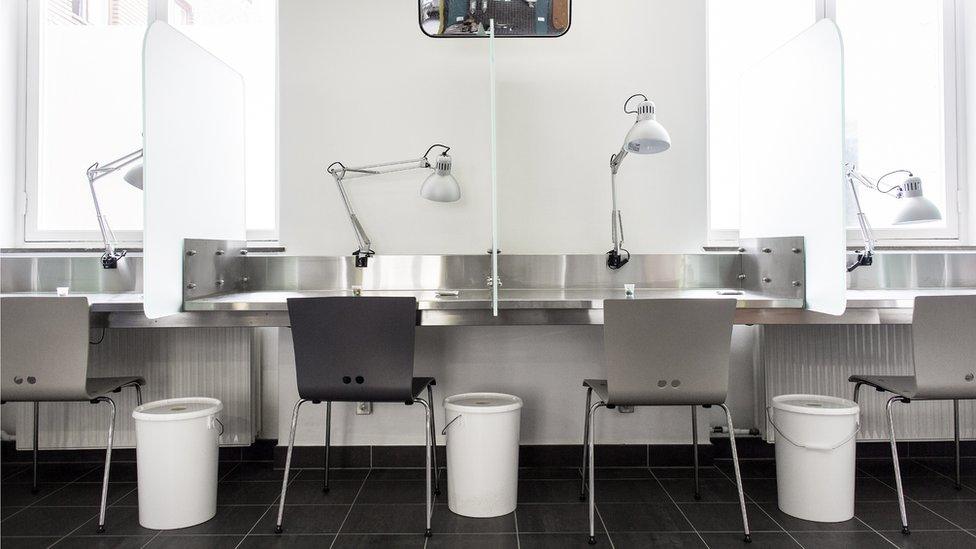
A drug consumption room in Copenhagen
Mr Krykant believes that because the van is in his name he may face arrest under the Misuse of Drugs Act.
But he says he is undeterred by the potential legal consequences.
"I'm hoping Police Scotland will see it's not in the public interest to arrest me and understand the reason I'm going ahead with this," he says.
"I obviously don't want to be arrested, but I'm willing to put myself in that position and I think it'll only reflect badly on the government if that happens."
Police Scotland had not replied to our request for comment by the time of publication.
Mr Krykant is not a medical professional, but says having run a clinical service, he is trained in first aid and treating overdose from heroin.
Asked how he would feel if someone died of an overdose in the back of his van, he says: "That's a fear tactic."
He said there have been no reported deaths from overdose in safe consumption facilities, external and said naloxone would reverse any opiate-based overdose.
'No silver bullet'
Glasgow City Council first proposed introducing so-called fix rooms more than three years ago in a bid to encourage users to inject drugs in a safe and clean environment, away from the street and under medical supervision.
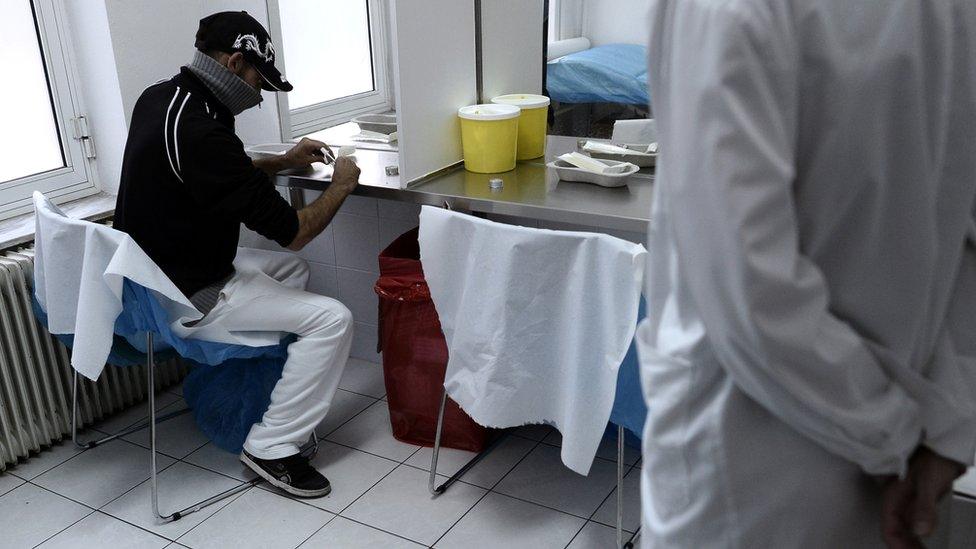
Greece has opened a drug consumption room
It was backed by the Scottish government but drug legislation is not devolved and the Westminster government blocked the scheme.
Last month, ahead of a UK-wide drugs summit, crime minister Kit Malthouse reiterated the UK government's opposition to drug consumption rooms, describing them as a "distraction".
"We have to recognise this is a complicated problem and there is no silver bullet solution," he told the BBC, saying research into fix rooms abroad had shown their outcomes were "mixed".
"They are quite small-scale and [this] demands a much more assertive approach.
"The bulk of people who are dying from drug consumption needed treatment alongside education over a long period."
Mr Malthouse also said more needed to be done to disrupt drug supplies, especially online and on social media, using "intelligent enforcement".
'Courageous'
But some experts disagree.
Niamh Eastwood, from the drug charity Release, believes evidence for the effectiveness of drug consumption rooms is "overwhelming".
"It's for those who don't have a space to inject privately and safely. It brings them into these facilities and also is an opportunity to engage people."
She described Mr Krykant as "courageous" and said it was "shameful" he felt he had to act himself.
"He's stepping in where actually government should be," she said.
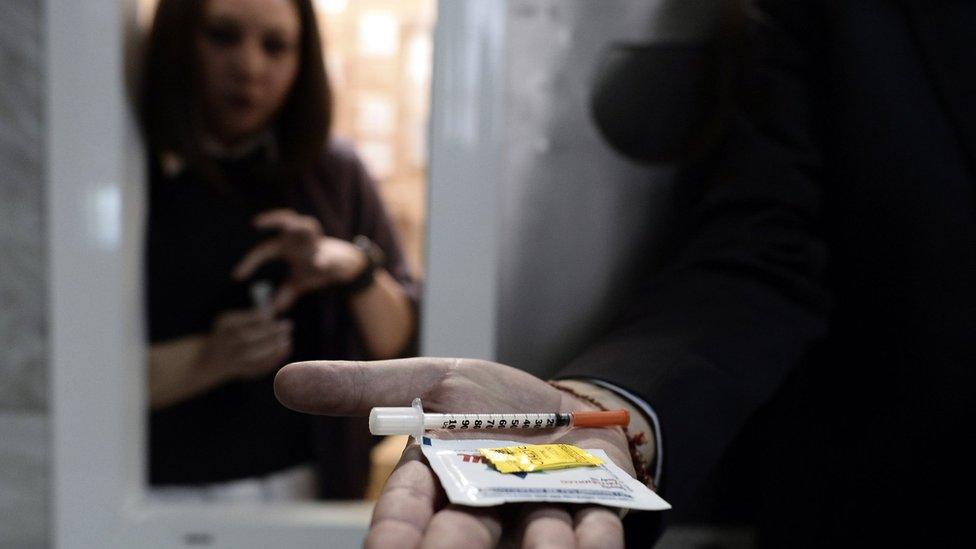
Asked about Mr Krykant's plan, a spokesperson for the Scottish government said: "We recognise the frustration people are feeling but the introduction of such facilities will require a change in the law by the UK government.
"Meanwhile, the Scottish government cannot condone any action which would be against the law."
For Mr Krykant, the mobile fix room is not the ultimate solution, but he does believe the van will be key to engaging people who are hard to reach.
"People are using these drugs anyway, so let's talk to them about it".

Follow the BBC's Victoria Derbyshire programme on Facebook, external and Twitter, external - and see more of our stories here.
- Published7 March 2020
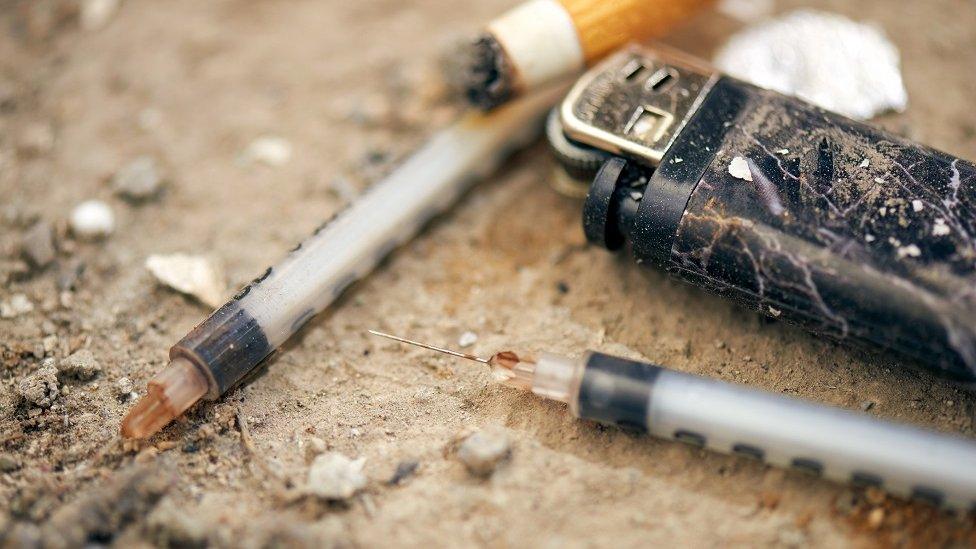
- Published27 February 2020
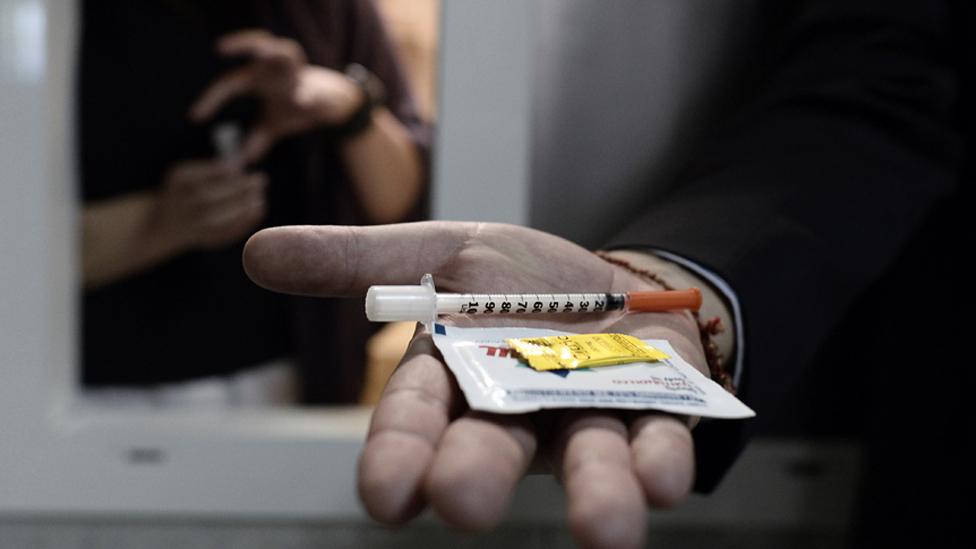
- Published30 July 2021
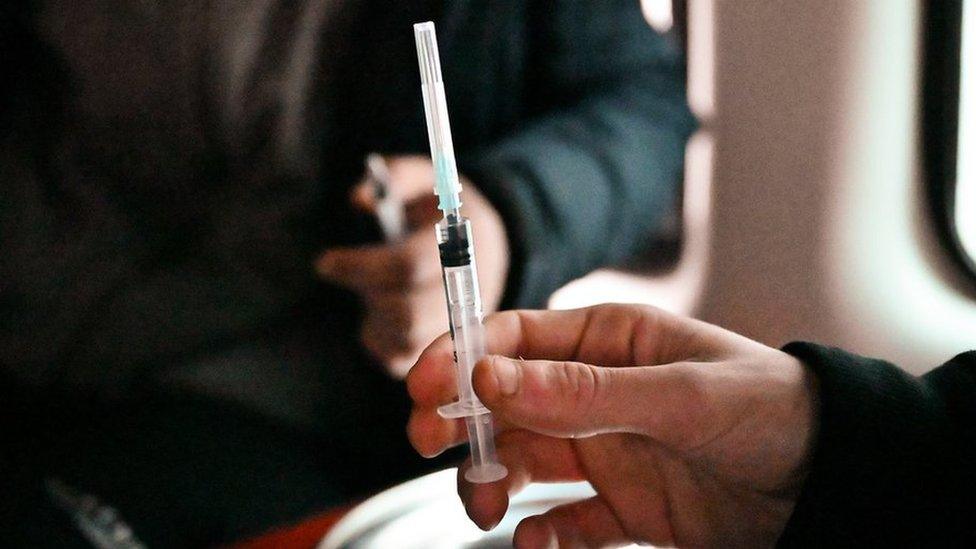
- Published26 July 2017
